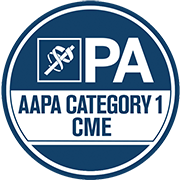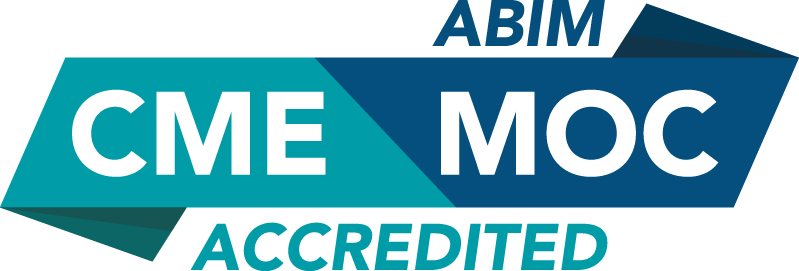Rational Opioid Prescribing in Team-based Practice 2023-2025
This course is designed to meet the Wisconsin MEB requirements for continuing education on prescribing opioids and other controlled substances.
Course Overview
This interactive course addresses minimizing opioid use and safe opioid prescribing in clinical practice. Participants have multiple opportunities to engage in learning by viewing presentations, working with clinical cases and receiving immediate feedback, and studying provided educational resources.
Practice Gaps and Needs
The misuse of opioids is a major public health issue. An estimated 128 people in the United States die every day after overdosing on opioids, and 21 to 29 percent of patients who are prescribed opioids for chronic pain misuse them. Healthcare providers play a key role in facilitating safe and responsible use of opioids, but there is great variation among providers in opioid prescribing practices. This course reviews the latest guidelines, and best practices to help healthcare teams address the challenges of providing patients adequate pain management while also reducing the risks associated with opioid prescribing.
Intended Audience
This activity is intended for physicians, advanced practice providers, nurses, pharmacists, and other members of healthcare teams who practice in Wisconsin and are involved in the treatment of acute and chronic pain.
Learning Objectives
As a result of participation in this course, participants will improve ability to:
- Explain the differences between acute, cancer and chronic non-cancer pain and their implications
- Describe the roles of different healthcare professionals in assessment and management of chronic pain
- Evaluate potential risks and harm associated with chronic opioid therapy
- Apply criteria for safe opioid selection, dosing, and duration
- Discuss initiation, continuation, and tapering opioids for chronic non-cancer pain
- Collaborate with the members of care team to implement techniques for therapeutic opioid monitoring, risk reduction, and addressing opioid use disorder
- Describe non-opioid options for chronic pain treatment
- Apply CDC and State of Wisconsin clinical practice guidelines related to opioids use
ELEMENTS OF COMPETENCE
In addition to knowledge, this activity has been designed to change learner competence and focuses on the ABMS/ACGME competency of medical knowledge. This activity also focuses on the interprofessional competencies of roles and responsibilities, and teams and teamwork.
Alaa A. Abd-Elsayed, MD, MPH | Nathan J. Rudin, MD, MA |
Paul R. Hutson, PharmD, MS | Keth Pride, MD |
Gina Bryan, DNP, RN (Previous Contributor) | Marianna Shershneva, MD, PhD CPD Evaluation and Assessment Specialist Office of Continuing Professional Development University of Wisconsin School of Medicine and Public Health |
Barbara J. Koschak, NP, DNP, MS, APRN (Previous Contributor) | Kenneth Fiala (Previous Contributor) |
FACULTY DISCLOSURE
It is the policy of the University of Wisconsin–Madison Interprofessional Continuing Education Partnership (ICEP) to identify, mitigate and disclose all relevant financial relationships with ineligible companies* held by the speakers/presenters, authors, planners, and other persons who may influence the content of this accredited continuing education (CE). In addition, speakers, presenters and authors must disclose any planned discussion of unlabeled/unapproved uses of drugs or devices during their presentation.
* Ineligible companies are those whose primary business is producing, marketing, selling, re-selling, or distributing healthcare products used by or on, patients.
The ACCME does not consider providers of clinical services directly to patients to be ineligible companies.
For this accredited continuing educational activity all relevant financial relationships have been mitigated and detailed disclosures are listed below:
CURRENT CONTRIBUTORS
Name | Role | Financial Relationship Disclosures | Discussion of Unlabeled/Unapproved uses of drugs/devices in presentation? |
Alaa Abd-Elsayed | Speaker/Author/Reviewer | Avanos Medical (Contractor), Abbott (Contractor), Curonix (Contractor), Halyard Health, Inc. (Contractor), SPR Therapeutics, Inc (Contractor), Medtronic (Contractor), averitas (Contractor) | No |
| Paul Hutson | Speaker/Author/Reviewer | No relevant relationships with ineligible companies to disclose | Yes |
| Keth Pride | Speaker/Author/Reviewer | No relevant relationships with ineligible companies to disclose | No |
| Nathan Rudin | Speaker/Author/Reviewer | No relevant relationships with ineligible companies to disclose | Yes |
| Grace Leonard | Planner | No relevant relationships with ineligible companies to disclose | No |
Accreditation Statement
 | In support of improving patient care, the University of Wisconsin–Madison ICEP is jointly accredited by the Accreditation Council for Continuing Medical Education (ACCME), the Accreditation Council for Pharmacy Education (ACPE), and the American Nurses Credentialing Center (ANCC) to provide continuing education for the healthcare team. |
Credit Designation Statements
Accreditation Council for Pharmacy Education (ACPE)
The University of Wisconsin–Madison ICEP designates this knowledge-based activity for 2.5 hours, 0.25 CPE credit. Credit can be earned by successfully completing the activity and the assessment. Pharmacists should claim only the credit commensurate with the extent of their participation in the activity. Credit will be provided to NABP CPE Monitor within 60 days after the activity completion.
Universal Activity Number JA0000358-0000-23-055-H08-P
American Medical Association (AMA)
The University of Wisconsin–Madison ICEP designates this enduring material for a maximum of 2.5 AMA PRA Category 1 Credits™. Physicians should claim only the credit commensurate with the extent of their participation in the activity.
American Nurses Credentialing Center (ANCC)
The University of Wisconsin–Madison ICEP designates this enduring material for a maximum of 2.5 ANCC contact hours, 1.75 of which are eligible for pharmacotherapeutic contact hours.
American Academy of PAs (AAPA)
 | The University of Wisconsin–Madison ICEP has been authorized by the American Academy of PAs (AAPA) to award AAPA Category 1 CME credit for activities planned in accordance with AAPA CME Criteria. This activity is designated for 2.5 AAPA Category 1 CME credits. Approval is valid until September 13, 2025. PAs should only claim credit commensurate with the extent of their participation. |
American Board of Pediatrics MOC Credit
Successful completion of this CME activity, which includes participation in the activity and individual assessment of and feedback to the learner, enables the learner to earn up to 2.5 MOC points in the American Board of Pediatrics’ (ABP) Maintenance of Certification (MOC) program. It is the CME activity provider’s responsibility to submit learner completion information to ACCME for the purpose of granting ABP MOC credit.
American Board of Internal Medicine MOC Credit
 | American Board of Internal Medicine: Successful completion of this CME activity, which includes participation in the evaluation component, enables the participant to earn up to 2.5 Medical Knowledge MOC points in the American Board of Internal Medicine's (ABIM) Maintenance of Certification (MOC) program. Participants will earn MOC points equivalent to the amount of CME credits claimed for the activity. It is the CME activity provider's responsibility to submit participant completion information to ACCME for the purpose of granting ABIM MOC credit. |
 | Successful completion of this CME activity, which includes participation in the evaluation component, enables the learner to earn credit toward the CME with self-assessment requirements of the American Board of Surgery’s Continuous Certification program. It is the CME activity provider's responsibility to submit learner completion information to ACCME for the purpose of granting ABS credit. |
Continuing Education Units
The University of Wisconsin–Madison, as a member of the University Continuing Education Association (UCEA), authorizes this program for 0.25 continuing education units (CEUs) or 2.5 hours.
Wisconsin Medical Examining Board Opioid CME
This course is designed to meet the Wisconsin MEB requirements for continuing education on prescribing opioids and other controlled substances.
Course Title: Rational Opioid Prescribing in Team-based Practice
Number of Credits: 2.5
Medication Access and Training Expansion (MATE) Act
This course is designed to meet the requirements outlined in the Medication Access and Training Expansion (MATE) Act. (Click here for more information.)
Number of hours: 2.5
Available Credit
- 2.50 AAPA Category 1 CME
- 2.50 Wisconsin Responsible Opioid Prescribing Credit
- 2.50 MOC: ABIM Medical Knowledge Points (Part II)
- 2.50 MOC: ABP Lifelong Learning Points (Part II)
- 2.50 ABS Accredited CME
- 2.50 ABS Self-Assessment
- 2.50 ACPE Contact Hours - Pharmacist
- 2.50 Wisconsin Responsible Opioid Prescribing Credit
- 2.50 AMA PRA Category 1 Credit™
- 2.50 Wisconsin Responsible Opioid Prescribing Credit
- 2.50 ANCC Contact Hours
- 2.50 Wisconsin Responsible Opioid Prescribing Credit
- 1.75 ANCC Pharmacotherapy Contact Hours
- 2.50 University of Wisconsin–Madison Continuing Education Hours
- 2.50 Approved for AMA PRA Category 1 Credit™
- 2.50 Wisconsin Responsible Opioid Prescribing Credit
Registration for this activity can only be completed through the ICEP Learning Portal. Attendee registrations made through any other sites cannot be honored. UW-Madison ICEP is not able to refund fees paid through unaffiliated registration sites, such as eMedEvents.com, MedConfWorld.com, EventEgg.com, and 10times.com. Please report any unauthorized websites or solicitations for registrations to [email protected].
Accessibility
The University of Wisconsin provides equal opportunities in employment and programming, including Title IX requirements. The University of Wisconsin fully complies with the legal requirements of the ADA and the rules and regulations thereof. If any participant in this educational activity is in need of accommodations, please notify us at [email protected]
Required Hardware/software
Free, current version of Edge, Firefox, Safari, or Chrome. Some older browsers and Internet Explorer could produce error messages or not display the content correctly.
Free, current version of Adobe Acrobat Reader or other .pdf reader

 Facebook
Facebook X
X LinkedIn
LinkedIn Forward
Forward